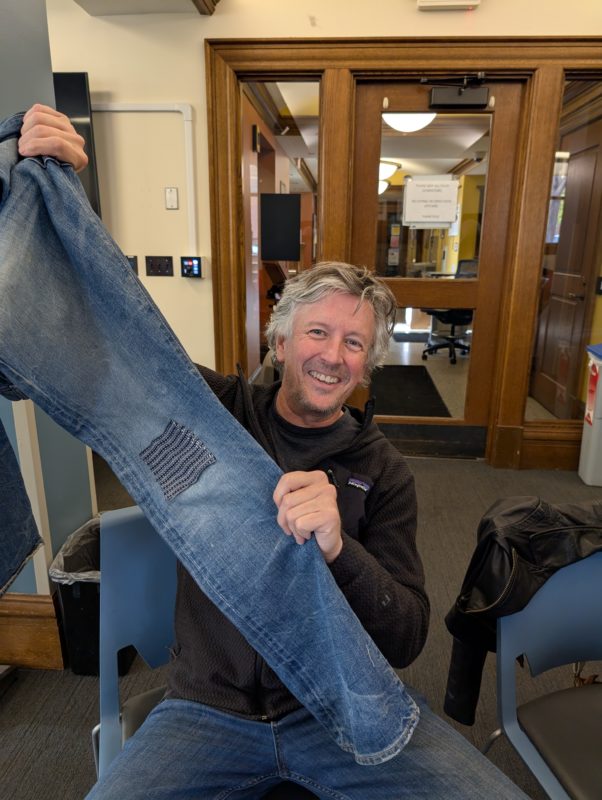The 55th Anniversary of Earth Day is being celebrated globally on April 22 with the theme, “Our Power, Our Planet.” Sustainability is a legacy tenet of our co-op, and a guiding value in the decision-making of our growing co-op community. Our recent conversation with Reuse Minnesota (our April 2025 Change Matters Partner) inspires us to reuse, repair, and repurpose what we already have!

reuse minnesota
In 2012, Reuse was founded to highlight the economic, social, and environmental benefits of a reuse economy in Minnesota. Their mission is to build partnerships and support a vibrant reuse network through education, advocacy, and promotion through regenerative, reuse-centered communities that protect the environment and value the well-being of future generations.
defining a reuse economy
We spoke with Emily Barker, Executive Director of Reuse Minnesota, to learn how their organization defines a reuse economy. “Reuse is anything that allows for the continued use, repair, or repurposing of items or materials which extends the life of resources and decreases the demand for new production,” says Barker. She further explained that this includes activities like thrifting, repairing, refurbishing, upcycling, repurposing, borrowing, lending, renting, and more.
reuse education
Reuse specializes in connecting folks who want to reduce their consumption with folks who are already practicing reuse, whether through their own businesses, or in their personal lives. Reuse’s website features a directory of organizations in the renovation, repair, resale, refill, repurpose, and rental spaces to encourage everyone to use what they already have, and find new uses for old things!
product lifecycles
Many of the programs Reuse provides are around education, both in schools and in the greater community. “Supporting Minnesotans in learning more about reuse is both our passion and our expertise,” says Barker. Central to their messaging is considering the lifecycle of any product, both upstream and downstream. While it’s important to know whether an item can be recycled or donated rather than thrown in the trash, that end-of- life action tends to have a lower impact environmentally than the creation of it in the first place. “Resource extraction, processing, and manufacturing have much greater impacts. When we opt for reuse, we avoid those steps in the lifecycle.”
small steps add up
While considering the lifecycle of every object in your home can feel overwhelming, engaging in reuse practices is an easy solution! “Do you like clothing and fashion? Consider learning about visible mending as a way to extend the life of your garments and add some one-of-a-kind flair. Are you a co-op shopper tired of all the single-use grocery bags in your home? Commit to bringing reusable bags each time you stop by The Wedge (and if you forget, check out the “Bring a bag, take a bag” bins by the registers!). Do you have a non-working lamp in your basement? Check out the events tab of Reuse’s website to find the next fix-it clinic and make a plan to go! The possibilities are endless and we are here to help,” says Barker.